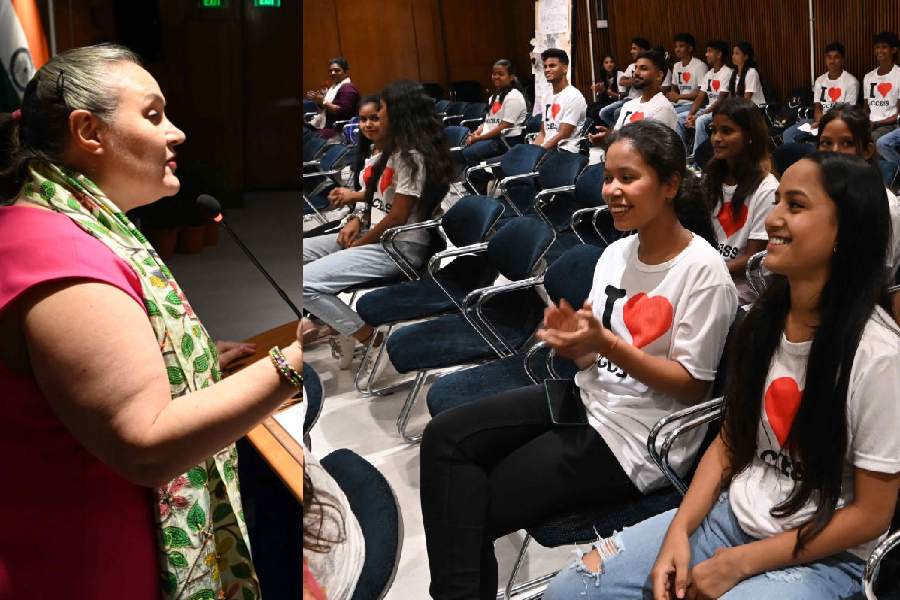English classes for a better future


Pankaj and Anjali are among 25 first-generation learners from financially disadvantaged families who can now communicate in English, a marked difference from two years ago.
For two years, they participated in an English scholarship programme offered by the US state department.
They had no guidance at home, and even if they made a mistake, they could not seek any help. To top it, they had diverse challenges to overcome. The most overpowering of them: poverty.
Pankaj was on the verge of quitting the classes because they didn’t have money at home.
“My father had taken ill and could not work. I decided to quit (English classes) but then thought that if I gave
up I would be jeopardising
my chance of learning something that will help me, “ said Pankaj.
He sometimes turned up late for classes; whenever a passenger had to be dropped far from where he would have to park the owner’s car.
The two-year programme has seen many young people transform themselves: from speaking a few words or phrases to constructing sentences and conversing in English.
“I can’t say that I am fluent in English but unlike earlier I can communicate in the language and others can understand what I say. It has boosted my confidence,” said Anjali.
Her mother is a help in a hospital and her father delivers electronic goods to customers. The 18-year-old aspires to play ruby internationally, she said.
The programme is an initiative to provide English communication skills to talented students from socio-economically disadvantaged communities and enable them to compete for opportunities in higher education and the job market.
The US Consulate General Calcutta in partnership with the Regional English Language Office (Relo) of the US Embassy in Delhi and the International Institute
of Hotel Management (IIHM) Calcutta recently hosted
the English Access Scholarship Programme graduation ceremony at the American Center.
The ceremony featured presentations on the students’ two-year programme, their climate change-related campaigns and alumni anecdotes.
“These students exemplify the true meaning of inclusion and perseverance. Over the past two years they have enhanced their English language skills and the core values of diversity, equity, inclusion and accessibility,” said consul general Melinda Pavek.
The students came from Future Hope, an NGO that works with children from struggling families. All of them play rugby.
“The programme was conducted not just inside classrooms but what they learnt outside through various workshops makes it a comprehensive experience,” said Sujata Sen, CEO, Future Hope.